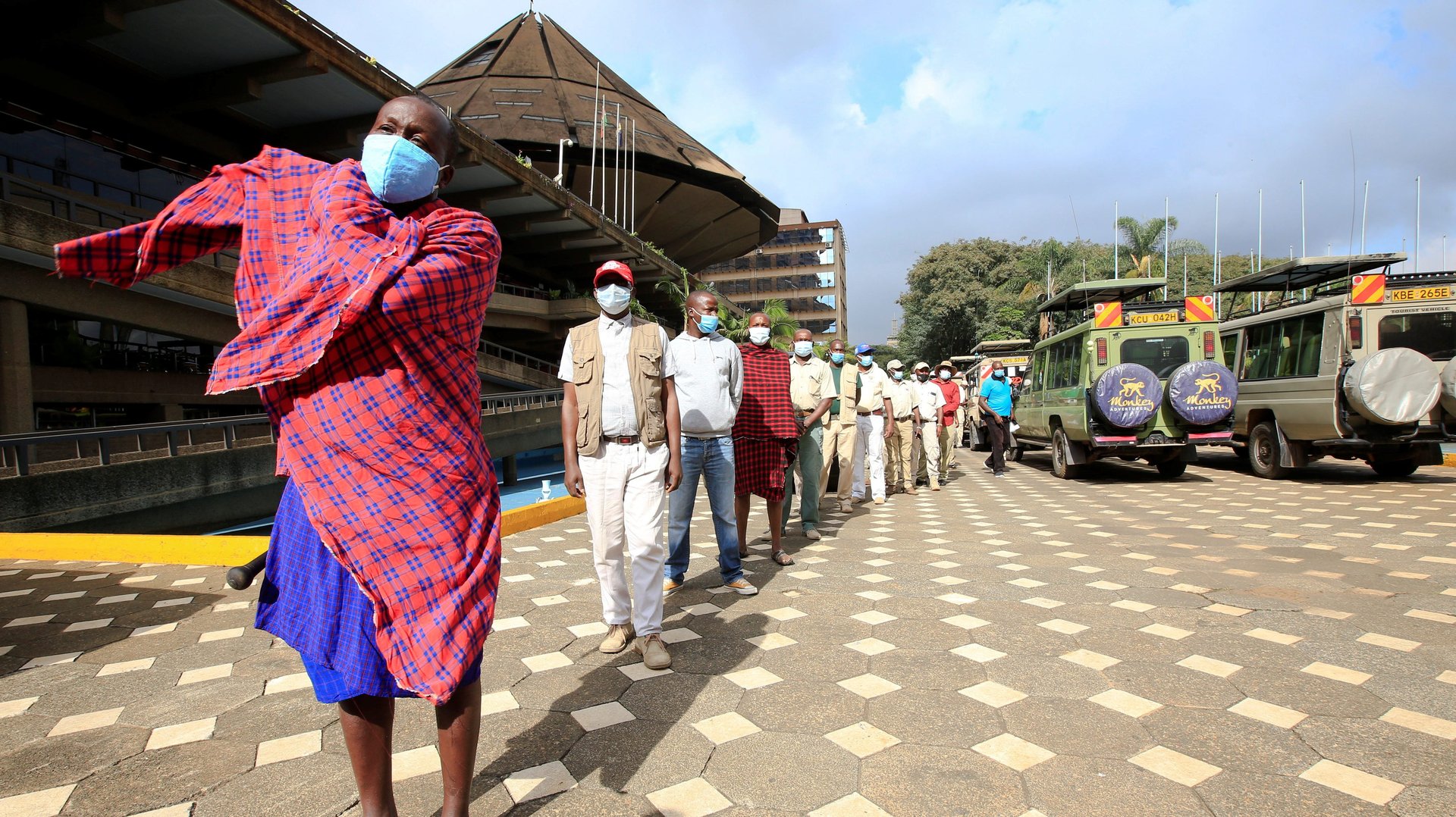China’s vaccine outreach in Africa is falling short of Beijing’s pledges
Last August, president Xi Jinping reportedly promised in a phone call with Morocco’s King Mohammed VI that China would prioritize delivering a Covid-19 vaccine to African nations once it had created one.


Last August, president Xi Jinping reportedly promised in a phone call with Morocco’s King Mohammed VI that China would prioritize delivering a Covid-19 vaccine to African nations once it had created one.
Since then, a number of Chinese pharmaceutical companies have developed Covid-19 vaccines which have been distributed domestically, as well as sold and donated overseas. But recent data show that China’s involvement in Africa’s vaccine programs, through donations and sales, has been the slowest among all regions where its vaccines are in use.
According to a vaccine tracker developed by Beijing-based firm Bridge Consulting, China has donated 18.5 million vaccine doses worldwide, with 5.85 million going to Africa, less than half of what has been donated to the Asia Pacific region (but more than what has been given to Latin American countries.)
The country has sold far more vaccines worldwide: 683 million doses, according to Bridge. But Africa has purchased the least amount of the regions tracked by the firm—33 million, the majority by Egypt and Morocco. By comparison, Latin America has purchased 279 million doses, Asia Pacific has purchased 260 million, and Europe has purchased 111 million.
“The pace of these deals has picked up; however, the total number of vaccines delivered to Africa by China has remained lowest among the regions,” the firm states. “Overall, China’s vaccine outreach in Africa still appears to be rather slow.”
Professor Stephen Chan, an expert in China-Africa relations at the University of London, explained that this is in part because China still needs vaccines for domestic use, and so cannot manufacture at the rate to satisfy global demand.
But African countries also aren’t able to purchase and distribute the vaccines as quickly as China might have hoped, Chan said. “Despite the standard Chinese model of upfront sweeteners—in this case, donated vaccines— bulk acquisition to meet national needs requires vaccines to be purchased, even if on favorable terms,” Chan said. “The financial capacity to do so, not to mention the logistical capacity actually to use all vaccines available, remains beyond many African countries,” he said.
Of the almost 40 million donated and purchased doses of the Chinese vaccine, so far only 12.3 million doses have been delivered to the continent, with Morocco, Egypt, Zimbabwe, and Guinea alone accounting for 8 million doses of the vaccines delivered, Bridge estimates. The remaining doses are rather small donations made to the other countries in the continent.
Still, with 39.7 million Covid-19 vaccine doses delivered in Africa, according to the World Health Organization, that would mean that approximately one-third of vaccines so far have been Chinese.
Africa has the slowest Covid-19 vaccination rate among all regions and accounts for only 1% of the over 1.3 billion COVID-19 vaccines that have been administered globally.
Most African countries have relied on Covax, a vaccine-sharing initiative by WHO and global vaccine alliance GAVI, which is providing vaccine doses for low-income economies and 49 countries in the continent. African nations have received around 18 million doses from the scheme so far, according to WHO. Though China announced it will donate 10 million doses to the scheme, since none were approved for use by WHO for Covax until recently, the majority of vaccine doses it has donated and exported have been through bilateral channels.
This has led to concerns that China is using the pandemic to enact “vaccine diplomacy,” in which donations and sales of vaccines are done to gain influence and favorable access to African politics and markets.
China’s foreign ministry official Wu Peng told reporters this week that the country was selling vaccines to African nations at “favorable prices,” in contrast to other wealthy nations such as the US which had prioritized vaccinating their own populations first (the US recently pledged that it will donate 80 million vaccine doses but hasn’t specified which countries they will go to). “Aid alone cannot solve Africa’s vaccine issues,” Wu said. “We must support local manufacturing of vaccines in Africa, even though this is difficult due to (low) levels of industrialization.”
WHO this month gave emergency approval to the Chinese Sinopharm Covid-19 vaccine. Gavi is reportedly in talks with Sinopharm to add the vaccine to the Covax portfolio.
The addition of a Chinese vaccine to Covax would boost access in Africa, something that is particularly important right now. The Covax program is experiencing major setbacks as its main supplier, the Serum Institute of India, stopped exporting vaccines in April due to the surge of coronavirus cases in India. The company tweeted on May 18 that it hopes to resume exporting to Covax and individual countries “by the end of this year.”
Dr John Nkengasong, the director of the Africa Centres for Disease Control and Prevention, said this week that the approval of the Sinopharm vaccine was something to be celebrated. “The more vaccines approved by WHO [for] emergency authorization use, the better for everybody. It means that we have more options on the table to use, in terms of rolling out vaccines,” he said. “I’ve always said that in this extremely unpredictable battle, we should be celebrating every little success.”
Professor Francois Venter, a medical professor at Wits University in South Africa and a former advisor on Covid-19 to the South African government, said the WHO approval of the Sinopharm vaccine “gives us confidence in [its] safety and efficacy, and means China and its companies need to start taking responsibility for supplying the world.”
—Carlos Mureithi contributed reporting.
Sign up to the Quartz Africa Weekly Brief here for news and analysis on African business, tech, and innovation in your inbox.